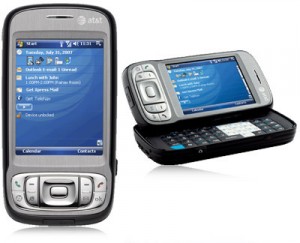OK, AT&T. You win. The Holiday Inn Express in Palm Springs, the Hilton in Northridge, the Sandman Inn in Santa Barbara, the Hilton Suites in Phoenix, and the Hotel Arizona in Tucson have finally broken me. Take your $10, and be happy.
My iPhone provides so much more of a reliable internet connection than the wifi at any of these establishments, that I have exceeded my 2GB data allowance for the month for the first time since giving up the unlimited plan.
I could have made it, I think. I was on day 28 of my month. If things had gone well, I might have just snuck in under the wire. But trying to stream TV shows on my night off sent me over the edge. It’s physically impossible. And it’s really pathetic that I could connect with a freaking phone and watch shows without interruption. On AT&T, no less! So I decided that the internet this month has been so sucky that I deserve to be able to watch a show I want to see on my night off, and I don’t care if I have to pay ten bucks to do it.
This is why I tolerate AT&T’s tethering plan. I know what happens when you tour. You get screwed over by every hotel you enter — blocking ports (this one blocks my favorite MMO, and AIM, of all things, and God knows what else), terrible bandwidth, and things that load so slow that whatever you’re trying to do just plain times out, even if that thing you’re trying to do is check your email. And then there’s the Herberger Theater, which blocks email ports. There are times when you are so frustrated by lack of bandwidth that paying $10 per GB for a connection that works and is yours alone is actually worth it. I knew this day would come, and I am not upset at AT&T. I kind of wish I hadn’t hit this limit on something so frivolous like a 500MB TV episode, when I have plenty of other TV shows on an external hard drive, but it was more about expressing my freedom to do whatever the hell I feel like on the internet, when I want to.
So there. Are you happy now, AT&T? I’ll be giving you your 10 bucks, and I said something nice about you. Mark this day on your calendar.



